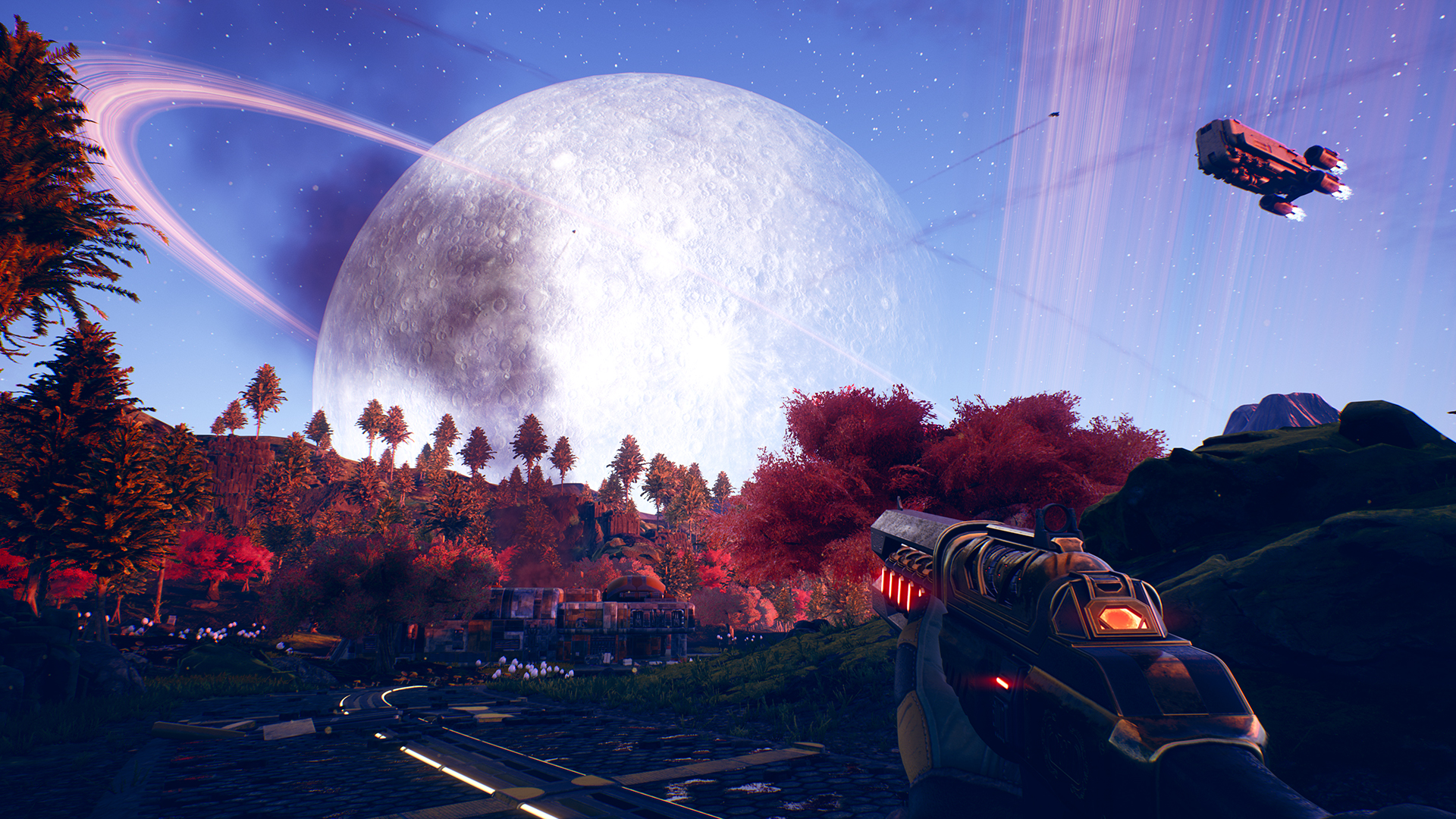The Outer Worlds isn’t a Microsoft game, even though it’s buying Obsidian
Take-Two’s Private Division may have snatched the jewel from the crown
Late last night, after everyone was finished swooning over
the trailer for Obsidian Entertainment’s The Outer Worlds but before
this morning’s embargoed stories hit, there was a collective pause on social media.
“Wait a minute,” wondered several folks out loud, “
didn’t Microsoft buy those guys just last month?” We wondered the same thing. So I asked Leonard Boyarsky, co-game director and co-creator of the
Fallout franchise, about it during our interview earlier this week.
“Microsoft came and looked at a bunch of different stuff we were doing, and this game [
The Outer Worlds] was one of them,” Boyarsky said. “But we mostly spend — well — we’ve exclusively been working with Private Division on this.”
Private Division is
a new independent-focused label under Take-Two Interactive Software. It’s home to a number of different, and unusual, projects. Among them is
Kerbal Space Program; Take-Two bought developer Squad
not long ago. Private Division will also publish Assassin’s Creed creator Patrice Désilets’ bizarre, early-human action adventure game,
Ancestors: The Humankind Odyssey.
Effectively, Microsoft got to see an early preview of
The Outer Worlds before it was unveiled to the world. But the people at Take-Two got there first and, if the game does well, they’re the ones who will get paid.
“The acquisition really hasn’t been a part of what we’re doing at all [on
The Outer Worlds],” Boyarsky continued. “We’ve just been working on this game [with] the great folks over at Private Division. None of that is going to change.”
Reading between the lines, however, the team at Obsidian has to be incredibly busy right now. They’re currently working to port
Pillars of Eternity 2: Deadfire, which was
funded on the Fig platform, to PlayStation 4, Nintendo Switch and Xbox One. There’s the yearlong journey to get
The Outer Worlds out the door, but there has to be at least one other project being developed behind closed doors. And it must be
something to get Microsoft excited enough to purchase a studio that’s currently working on two other projects for people other than them.
On paper, that sounds like a gamble. But with Obsidian’s history of creative output and the deep bench of talent it has on staff, I can see why Microsoft decided to roll the dice.









![The Year of Incline [2014] Codex 2014](/forums/smiles/campaign_tags/campaign_incline2014.png)








